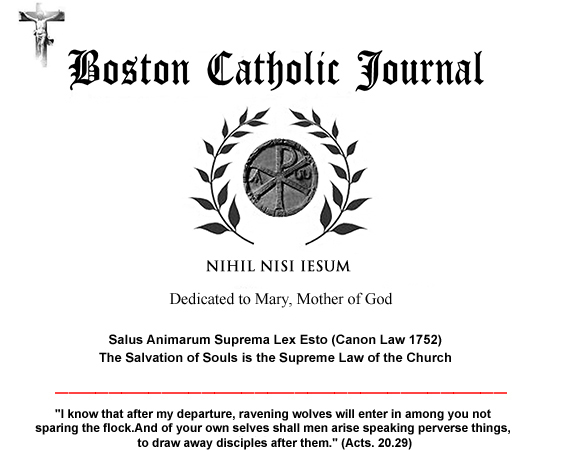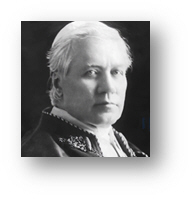|

The Agony of a Nun
and Our Unspeakable Hypocrisy

“Jesus lifting up Himself,
said to her: Woman, where are they that accused thee?”
You have been regaled with her shame, her guilt, and her sorrow —
her agony
… smugly and self-righteously you sit back to voyeuristically catch
the briefest glimpse of her sin, luxuriating in her humiliation, eager
for even more humiliating details to unfold. It may even awaken your
own concupiscence! Your lurid imagination may stir and you may be brought
to the same sin within yourself ... but you will allow no shame
or guilt to stain your conscience — the guilt and shame that you so
readily heap upon another in her helplessness.
A nun, we are told, succumbs to temptation and sins ... and we
are aghast, even as our own sins cry out against us?
If a towering rage against this hypocrisy does not rise up within you,
you have no place in the Fold of the scarred, stained, and repentant
— whom Christ came to call!
“I came to call sinners, not the righteous.”1
Remember?
Before you cluck your tongue at the thought of a consecrated nun breaking
her vow of chastity, you would do more than well to take a sober
assessment of your own life, steeped in the same sins of weakness,
or sins more vile and probably worse: sins of malice! And if uncovered
to the world … what a scandal to the Faithful you would
be!
On the day when all that you have uttered in secrecy and done
in darkness will be shouted from the rooftops 2
can you even begin to imagine your own burning shame as you
stand, not simply before the world, but before all men and women
of all time who will be summoned before Christ on that day of
just and final judgment in which nothing can be hidden.
I will ask you then, who has not fallen victim to sins of weakness?
Christ, of course, knew this and warned all of us in the Agony of the
Garden:
“Watch
and pray that you enter not into temptation. The spirit indeed is willing,
but the flesh weak.”
(St. Matthew 26.41) He was even looking upon St. Peter himself, and
the other Apostles as he said this — because the flesh is weak
and in times of great need, even need of the greatest vigilance ...
it fails — and it was in that weakness that they had succumbed to sleep
as the Temple guards came to seize Jesus, clap Him in chains, and carry
Him off to His Passion! Even when their sleep was broken by the torches
of the guards, it was in weakness again that they fled in their
fear, leaving Christ alone to His tormentors.
But if a cloistered nun, after how many years faithfulness, and
having heroically resisted how many temptations of not one kind
but of many kinds: for more and better food, more than four to five
hours more unbroken sleep, to refrain from observing unbroken silence
apart from necessity — if such a one falls into sins of weakness
… you are scandalized?
You who eat in great
variety much and often, sleep 8 unbroken hours (and more on weekends),
who enjoy conversations of many types and with many others in uncounted
hours, and who (may) pray for fifteen minutes (or less, if at all) each
morning, and probably none before bed; you who come and go as often
and as far as we wish, who sleep in luxurious beds many times our width,
and in rooms well and richly appointed, ... you will stand
in cold and arrogant judgment over this women? when the very ocean calls
you in your shameless hypocrisy to its depths as your judgment binds
a millstone around your neck and justice tosses you into the sea?
You
will judge, you will shame, you will humiliate, you
will reproach and scorn a one who has fallen? Only vultures swirl over
and feed on the flesh of a wounded sparrow. Pray rather than prey. In
the one you yourself will find mercy, and in the other you will find
none. How dreadful that prospect looms over you!
Updated: Part II
You had taken your cue from Tabloid Journalism,
and are finally “satisfied” having learned “the truth” about a matter
that never concerned you in the first place! A Nun had sinned after
all — or so it has been sensationalized ... by her own bishop!
“Unimpeachable” sources, we are assured, have verified this, chief
among whom is the apparently less-than-unimpeachable Bishop Michael
F. Olson of Fort Worth, Texas, about whom troubling details are now
emerging (see below), and for whom we have at least some manly advice.
Even if Bishop Olson is right about what we have come to believe
concerning this unfortunate woman, his publicity campaign — even if
it was started by another — will likely come back to bite him in the
ass. Why? Because he accomplished saving his own reputation only
by smearing the reputation of another — something a bishop — or even
a decent person should never do. Especially if that other person is
a woman. And most especially if she is a nun.
It simply is not what a man does.
Every Nun who remains a Nun — even one who had sinned grievously
and repented — has absolute devotion to Jesus Christ. She had
given Him the most precious gift that she possessed: her absolute and
undivided love. In her poverty it was the only thing that
was indefeasibly hers alone to give to God; everything else
had been first given to her by God: apart from Christ
Himself she had no possessions. She strove for perfection, but
never reached it, just as she strove to be sinless and never attained
to it. Even in that crucible of love, and despite all her divine aspirations,
she remained one of us, she was, is, and ever will be, human, and fraught
with all that this entails, including a susceptibility to sin. No one
escapes this.
No Nun. No priest. No pope. I tell you nothing new. Saint Paul
is remorselessly clear about this:
All
have sinned, and fallen short of the glory of God.”
(Romans
3.23)
“I
am carnal, sold under sin ... For I do not that good which I will;
but the evil which I hate, that I do.” (Romans 7.14)
“I find then a
law, that when I have a will to do good, evil is present with me.
For I am delighted with the law of God, according to the inward
man: But I see another law in my members, fighting against the law
of my mind, and captivating me in the law of sin, that is in my
members. Unhappy man that I am, who shall deliver me from the body
of this death?”
(Romans
7.21-24)
Given this sad patrimony, this inclination to sin, from our First
Parents, Adam and Eve, are we to expect sinlessness from anyone?
We can, and do expect the heroic struggle against sin and the
pursuit of sanctity from our priests and Nuns (even as we must pursue
it no less within ourselves!). But to expect sinlessness from them is
to expect of them something that surpasses human nature — and even
that, being Angelic, had also been susceptible to sin! Imagine
that! And we would hold dust and ashes to a greater account still? That
is madness.
If a Nun has stumbled, and fallen short of her lofty vocation
through sin — and yet remains in Religious life, we are constrained
by charity to understand her as resolutely refusing to be defeated
by sin, continuing in the hope which Christ offers to everyone who puts
their shoulder to the plough, refusing to look back once the blade has
turned the soil. What we really witness is the determination not
to allow sin to prevail, to define her in terms of our own lurid
imagination; a refusal to succumb to the Mortal Sin of Despair, but
a trusting in the unfathomable depths of the love and mercy of Christ.
For what other conceivable reason would a Nun choose to remain if not
for an overwhelming love of Christ immeasurably greater than the contempt
of the world?
I believe this to be true of Mother Teresa Agnes. I have no compelling
reason not to believe this. And neither do you.
Do you think that she has she stopped loving Christ because she
sinned?
Have you in all your sins … who had never
loved Him with the consuming love of a cloistered nun, and for so long
... ceased loving Christ because you have sinned?
Whether you look upon her sternly or compassionately, my question
to you is this:
What business is it of yours or mine in the first place?
We are uneasy with Bishop Olson’s continued and vigorous efforts
to publicly defend his own credibility. Why is it so important to him
that he continues to sully the reputation of another — even
were it deserved? Cui bono? Who benefits from it? Not the
faithful. And certainly not Mother Teresa Agnes or the Carmelite Nuns
in Texas. Apart from the increasing publicity that he instigates we
would likely have known nothing of what has now become not newsworthy
but simply salacious. It is not by example that he so acts, given
Jesus’ response to the woman caught in adultery:
“Woman, where are they
that accused thee? Hath no man condemned thee? She said: No man, Lord.
And Jesus said: Neither will I condemn thee. Go now and sin no more.”
(St. John 8.10-11)
Given our own sins, which should concern us more — the
sin of one who is not so much as remotely within our acquaintance
— or our own sins, with which we are unquestionably
and intimately acquainted?
Of course, every sin, great and small, is to be abhorred as an
offense to Almighty God. I am not minimizing the gravity of any
sin.
Of this alone am I absolutely certain: that this
unfortunate woman has not so much as verged upon my own sins
in number, gravity, and magnitude!
But I will not extend to her the mercy
and second (and third, and fourth, and fifth, etc. etc.) chance that
I — every day — stand in need of?
I am not her judge. Nor are you. Only God is (thank God!). I am
in no position to “forgive her in my heart” or otherwise: I am
not God Who alone can forgive her! She has not sinned against me. And
if she did, I would forgive her! I have a real problem with the notion
of “scandal to the faithful.” We are a constant scandal
to each other! And if we are not, our priests and bishops daily
provide us with ample scandal, to say nothing of our pope!
If she is humiliated in her sin, how much greater and more
public should our own humiliation be for the countless sins
concealed within us? Our hypocrisy is breathtaking!
Father
Philip G. Johnson
Mother
Teresa Agnes
has been pilloried in a way that the priest, Father Philip G. Johnson
of the Diocese of Raleigh, NC has skillfully avoided. It was he, after
all, who had seduced her into sin, and in so doing not only sinned equally,
but with greater gravity still — for as a priest he is an
alter Christus, “another Christ” — one who possesses a unique sacramental
character within himself; one who participates in the sanctifying
power of Christ in a way that has no analogy between Nuns and Mary
whom they emulate but in whom they do not and cannot participate.
To his shame, and in yet
another egregious example of failure in manliness, Father Philip G.
Johnson has remained aloof throughout this tragedy, leaving Mother Teresa
in the pillory alone.
To our growing shame we
see in the Church,
apparently, what we too often encounter in secular society: the “authorities”
“wink” at the man ... and abandon the woman to suffer alone in
shame. Moreover, the press is every bit in complicity with this mindset,
sheltering the man and excoriating the woman.
Hypocrisy, it appears, has found a lasting
home in each and every shabby public venue.
Final note:
Learn what this means, if only for your own salvation:
“Nolite condemnare et non condemnabimini
3
Carve that into your heart — not the sin of another
who had fallen in weakness. Your lack of forgiveness and mercy is itself
a greater sin still: a sin of malice!
_______________________________
1 St. Luke 5.32
2
“Beware of the leaven of the Pharisees, which is hypocrisy. For there is
nothing covered, that shall not be revealed: nor hidden, that shall
not be known. For whatsoever things you have spoken in darkness, shall
be published in the light: and that which you have spoken in the ear
in the chambers, shall be preached on the housetops.”
(St. Luke 12.1-3)
3
“Judge
not and you shall not be judged.” (St. Luke 6.37)
See Archbishop Carlo Maria Viganò's blistering letter on this matter
(Catholic Family
News)
Geoffrey
K. Mondello
Editor
Boston Catholic Journal
July
3, 2023
 Printable
PDF Version
Printable
PDF Version
Comments? Write us:
editor@boston-catholic-journal.com

Totally Faithful to the
Sacred Deposit of Faith entrusted to the Holy
See in Rome
“Scio
opera tua ... quia modicum habes virtutem, et servasti verbum
Meum, nec non negasti Nomen Meum”
“I
know your works ... that you have but little power, and
yet you have kept My word, and have not denied My Name.”
(Apocalypse 3.8)
Copyright © 2004 - 2024 Boston Catholic
Journal. All rights reserved. Unless otherwise stated, permission
is granted by the Boston Catholic Journal for the copying
and distribution of the articles and audio files under the
following conditions: No additions, deletions, or
changes are to be made to the text or audio files in any
way, and the copies may not be sold for a profit. In the
reproduction, in any format of any image, graphic, text,
or audio file, attribution must be given to the Boston Catholic
Journal.
|
|



























